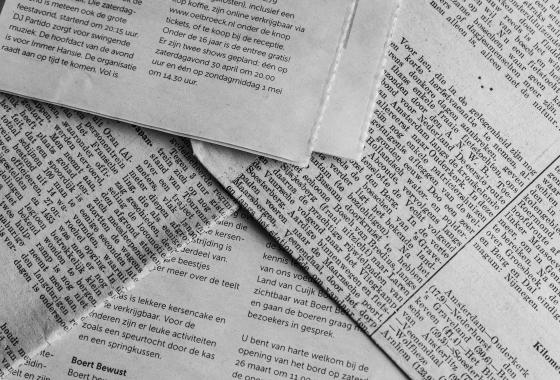
H12E - Condominium Regulations
Category : Housing
H12E - Condominium Regulations
General Clauses
ARTICLE 1
The present regulation is applicable to the building situated at ... parish of ... in ... and is:
- described in the Conservatória do Registo Predial (Conservatory of Land Registry), under number ...
- constituted as a horizontal property, under the terms of the registration ...
- registered in the main office of urban land registry of the parish of ...under Article ..., of the Finance Division of ...
ARTICLE 2
The building is comprised of ... autonomous portions, identified by letters ... to...
ARTICLE 3
- This regulation and the respective annexed documents will regulate the use of the common spaces of the building described above and will define the rights and duties of the joint owners relative to the same.
- The regulation applies as well to future joint owners, it being necessary to reproduce it in full in any contract of purchase and sale.
ARTICLE 4
All owners and renters or life-renters are obliged to abide by the regulation as it applies to them.
RIGHTS AND OBLIGATIONS OF JOINT OWNERS
ARTICLE 5
Joint owners have the right to use exclusively their portion and to utilize, in common, the existing common areas, equipment and services, under the terms of the present regulation, the constitutive title of horizontal properties and the law.
ARTICLE 6
Besides the limitations imposed by the constitutive title, the joint owners cannot:
- practise any acts which are prejudicial to or make difficult the utilization of the remaining portions and/or the common areas;
- impair, whether by lack of repair or by exterior alterations, the architectural line, the aesthetic make-up or the safety of the building;
- use the portion for any activity offensive to customary behaviour;
- use the portion for anything other than what is attributed to it by the constitutive title;
- occupy, in any way, the common areas, except if the constitutive title foresees it or the joint owners' committee decides to the contrary, by unanimous vote;
- disrespect, in the use of their portion, the legal provision for hygiene and salubrity and/or its reasonable requirements;
- emit sounds, vibrations, odours or smoke that, by their nature or intensity, can degrade the well-being of the remaining joint owners or put at risk their security;
- disrespect the decisions that have been legally taken by the joint owners' committee;
- practice any acts which, in any way, may harm the condominium or the other joint owners.
ARTICLE 7
The obligations of the joint owners are:
- to pay the condominium fee annually approved by the joint owners' committee, within the determined time period;
- to maintain their portion and equipment in good repair, good order and cleanliness;
- to consent to the execution of works and repairs necessary to the maintenance of the condominium, as well as to effect works in their autonomous portion whenever the integrity and safety of the remaining joint owners are at risk;
- to effect the payment of all expenses which, by force of this regulation, by deliberation of the joint owners' committee or by legal imposition are carried out and are of their responsibility;
- to inform the administration, in writing, about your usual residence, whenever it is different from that described in Article 1 or in the event of a change of address, and please indicate your fiscal number, telephone contact and email;
- to inform the administration, by registered letter, up to 15 days after selling the portion, indicating the full name and fiscal number of the new owner. The lack of communication implies, for the person who sold, the payment of the necessary expenses for the identification of the new owner.
ADMINISTRATION OF THE CONDOMINIUM
ARTICLE 8
- The administration of the condominium is the responsibility of the Administrator(s) and the joint owners' committee.
- The Administrator(s) will be designated by one of the following ways:
- election, by a majority, by the joint owners' committee;
- by nomination by the court, at the request of any of the joint owners;
- by other means agreed upon, unanimously, by the joint owners' committee.
- Unless decided otherwise by the joint owners' committee, the mandate of the administration will run for one year, renewable for the same period.
- The Administrator remains in office until a successor is designated by the terms of No. 2 of the present Article.
- In the absence or impediment of the Administrator, his/her functions will be discharged by the joint owner of the portion with the greatest permillage/percentage.
ARTICLE 9
- The Administrator has the following duties, among others that may be stipulated by the joint owners' committee:
- to convoke the joint owners' committee;
- to prepare the budget of revenue and income relative to each year;
- to verify the existence of fire insurance, propose to the committee the amount of insured capital and maintain the remaining insurance with respect to the condominium;
- to collect the income and effect the payment of common expenses;
- to claim from the joint owners their share of the approved expenses;
- to deal with the documentation relative to the condominium in government agencies or other official organs;
- to regulate the use of the common objects and rendering of services of common interest;
- to execute the deliberations of the committee;
- to represent the joint owners to the administrative authorities;
- to intercede on behalf of the joint owners in court actions, whether against any of the joint owners, or third parties, within the scope of his/her duties or when authorized by the committee;
- to ensure the strict execution of this regulation and of the legal and administrative provisions relative to the condominium;
- in the execution of paragraph g), to hire, suspend and dismiss staff responsible for the services of common utility; to supervise and coordinate the work of these people; and control all the services and work of third parties with respect to the condominium;
- to render accounts to the committee;
- to turn in, at the end of his/her mandate, all documentation and bank or treasury balances to the person taking over;
- to prepare the record of the condominium's bills for the approval of the committee, and to keep the respective documents, as well as all other documents having to do with the condominium;
- to set up the condominium savings account;
- to post, in a visible location, the rules with respect to the safety of the building, namely those having to do with the utilisation of equipment of common usage.
to ensure that fire safety conditions are maintained in common areas;
to ensure if there is a Common Reserve Fund “Fundo Comum de Reserva or Fundo de Reserva”;
to inform the condominium owners, in writing (can be by email), whenever the condominium is summoned or notified within the scope of a judicial process, arbitration process, injunction procedure, administrative offense procedure or administrative procedure;
to inform the condominium owners, at least every six months, by letter or email, about the development of legal processes;
to issue, within a maximum period of ten days, a statement of condominium debt, whenever requested, particularly for the purposes of selling the portion;
(x) intervene in all emergency situations, immediately calling an extraordinary meeting of condominium owners to approve the measures to be taken.
2. Present at least 3 budgets, whenever a decision by the condominium assembly is at stake regarding innovation works in the building.
3. Joint owners dissatisfied with any acts of the Administrator can appeal to the joint owners' committee in writing and in the established form, within 30 days of knowledge of the referred acts. To that end, the appealing joint owners must convoke the joint owners' committee within this time limit.
ARTICLE 10
- The joint owners' committee is comprised of all the owners of the autonomous partitions which make up the building.
- The joint owners can be represented by a proxy.
- Unless otherwise decided by a unanimous decision, the committee will meet during the first fortnight of January, by means of convocation by the administrator, for the discussion and approval of the accounts of the previous year and the approval of the budget for the current year.
- The committee will also meet, extraordinarily, when it is convoked by the Administrator or by a joint owner whose portion represents at least a quarter of the total value of the building or by joint owners dissatisfied with the Administrator and wishing to appeal to the committee.
- Convocations are made by registered letter with notice of receipt, sent to all joint owners with at least 10 day's notice. The date, time and location of the meeting as well as the subjects to be covered must be indicated. A convocation will also be valid if a convocatory notice is given to joint owners and a record kept of its date and receipt in a protocol book.
- The notice may be sent by email to those who express this wish at the meeting, provided that this is recorded in the minutes, indicating the email address. The condominium owner must confirm receipt of the summons.
ARTICLE 11
- If the number of joint owners needed to make a quorum does not appear and if another date has not been set in the convocation, a new meeting will take place a week later at the same time and location. In this case, the committee can deliberate by a majority of the votes of the joint owners present, as long as they represent at least a quarter of the total value of the building.
- If the conditions are met to guarantee the presence, on the same day, of condominium owners representing a quarter of the total value of the building, the meeting can take place 30 minutes later in the same place.
- The deliberations in need of approval by unanimous vote can be dealt with by unanimity of the joint owners present at the meeting, as long as these represent at least two-thirds of the total value of the building and on the condition that the absent joint owners approve the decisions made, under the following terms:
- the deliberations must be communicated to all absent joint owners by registered letter with notice of receipt, within 30 days;
- the joint owners have 90 days, after receipt of the letter referred to in the previous paragraph, to communicate to the joint owners' committee in writing their agreement or disagreement;
- silence on the part of the absent joint owners, after the referred time period, will be taken as approval of the deliberations.
CONDOMINIUM EXPENSES
ARTICLE 12
The disbursements effected to guarantee the normal functioning and maintenance of the common areas will be borne by the joint owners, through the periodic payment of a fee, according to respective permillage.
ARTICLE 13
The annual budget will include available sums destined for the conservation of the condominium, and will integrate a fund, designated the Common Reserve Fund (Fundo Comum de Reserva).
ARTICLE 14
- The purpose of the Common Reserve Fund is to cover the expenses rising from repairs or improvements made to the condominium.
- By resolution of the assembly, the Common Reserve Fund may be used for a purpose other than that indicated in the previous number, provided that the joint owners ensure payment, within 12 months from the resolution, of an extraordinary contribution to replace the amount used.
- Each joint owner will contribute to the Common Reserve Fund 10% of their share (the committee being able to fix superior amounts, if necessary) for the remaining expenses of the condominium.
- The Common Reserve Fund will be deposited in a condominium savings account.
- The Fund will be activated by the administrator according to the deliberations of the committee or by joint owners authorized to do so by the committee.
VOTING
ARTICLE 15
Each joint owner has as many votes in the committee as whole units which correspond to the percentage or permillage of his/her portion.
ARTICLE 16
Disputes between joint owners or between joint owners and the administration will, whenever possible, be submitted to arbitration.
RESPONSIBILITY AND PENALTIES
ARTICLE 17
The joint owner who, directly or indirectly, violates the dispositions of this regulation will be responsible for losses and damages incurred.
Joint owners will be held responsible for damages caused by personnel working for them.
ARTICLE 18
- The non-fulfilment of the rule in paragraphs a) and d) of Article 7, for periods of more than 30 days, will result in the payment of a fine in the value equal to the monthly condominium fee.
- If the condominium fee is not paid within 90 days, the administration will take actions necessary for the compulsory collection of the fee, namely taking judicial action against the joint owner in arrears.
- The non-fulfilment of the remaining rules of this regulation, as well as decisions by the administration, will result in the infringer indemnifying the remaining joint owners for damages suffered, in an amount to be stipulated by the condominium committee, without prejudicing the eventual civil responsibilities which may result from the act.
- The amounts paid under the terms of this article will revert to the Common Reserve Fund, as income.
FINAL RULES
ARTICLE 19
- Fire insurance is obligatory for the autonomous portions as well as for the common areas (multiriscos-habitação or multiriscos-condomínio)
- The insurance must be taken out by the joint owners.
- When this is not done, within the time limit and in the amount fixed by the committee, it falls to the Administrator to take out the insurance and, in this case, to be fully reimbursed for the premium paid.
- Fire insurance must be updated each year, it being the responsibility of the committee to determine the amount.
- If the committee does not approve the updated amount within 45 days before the annual premium update, the administrator must do so, in accordance with the index published trimestral by the Insurance Institute of Portugal (Autoridade de Supervisão de Seguros e Fundos de Pensões).
ARTICLE 20
- The joint owner who rents his/her portion must include in the respective contract, the obligation of the tenant to submit to the rules of the constitutive title, to the present regulation and to any alterations which come to be made.
- The rental of any portion must be made known to the administration, by registered letter, reporting the identity of the tenant.
ARTICLE 21
- The present regulation comes into force after its approval by the joint owners' committee.
- Each joint owner will receive a copy of the regulation, the original remaining in the possession of the Administrator.
- The procedure described in 1 and 2 applies to any alteration which is introduced into the text of this regulation.
NOTES ABOUT THE REGULATIONS
ARTICLE 2
In cases where the building is composed of divisions destined for commerce and habitation, it is useful to differentiate between them. In buildings where the permillage is not identical in all the portions, it is advisable to create a table in which they are all identified and the respective value is attributed. This table will, among other things, facilitate the counting of votes during condominium assembly meetings.
ARTICLE 5
Legally, each joint owner owns a share of the common property corresponding to the permillage or percentage of his/her portion. This does not prevent the joint owner from using the common property in its totality, as long as it is not used in any way contrary to that stipulated by law and the regulation and does not deprive the other joint owners of its use.
ARTICLE 6
- (b) It is advisable to specify those things considered to be prejudicial to the aesthetic or arquitectural make-up of the building. For example, the installation on balconies of aluminium frames, exterior air conditioning units or parabolic antennas...
- Among other possibilities, attention is called to cases where dripping laundry is hung out to dry, without previously advising the joint owners on floors below; and cases where water or detritus is disposed of in areas which affect the neighbours.
ARTICLE 7
- For reasons of convenience, a trimestral pre-payment scheme is advisable, to be paid either at the administrator's home or at a location to be indicated. Another possibility would be bank transfer on the same basis to the condominium account.
- (e) This right of the administration and respective obligation of the joint owner, is subject to determined limits, namely: only in the case of the suspected existence of facts that could cause damage to the remaining joint owners and the condominium in general (the carrying out of works which could affect the structure of the condominium or a neighbour’s portion, for example).
ARTICLE 8.2 (c)
DECO suggests the adoption of the following formula: automatic nomination, in the first meeting of the year, on a rotating basis, starting with the first portion mentioned in the constitutive title, to be succeeded by the remaining joint owners by alphabetical order of the denomination of the portions.
ARTICLE 12
The condominium fee, which results from the annual approved budget, should cover the expenses of the common parts (including cleaning and/or vigilance) and include the Common Reserve Fund used for general repairs to the building.
ARTICLE 13:
The creation of a fund for extra expenses is advisable. For example, to cover the cost of an eventual court action brought about by the committee.
ARTICLE 15
Example: with permillage, if the portion corresponds to 30 per mil of the total of the building, the owner has 30 votes in the assembly; with percentage, if the portion corresponds to 9 percent of the total of the building, the owner has 9 votes.
ARTICLE 16
The joint owners can, by unanimous deliberation of the assembly, define other situations where a unanimous vote would be necessary, as long as this does not go against the law.
ARTICLE 19.3
The amount of the applied penalties each year cannot exceed a quarter part of the collectible income of the portion of the infractor. Normally, the value of the collectible income of the portion can be checked in the 'Caderneta Predial'.
ARTICLE 23
If a unanimous vote for the Condominium Regulation (this document) is not possible due to the absence of any joint owners, this can be approved by a majority. In this case, the regulation will come into force, provisionally, until its confirmation by all joint owners or, alternatively, until the approval of another regulation.
The Condominium Regulation and Notes are translated from "Guia do Condomínio" produced by DECO (Portuguese Consumer Association).
Condominium Regulation - Approval Slip
Each joint owner who approves of the Condominium Regulation should fill it in, sign it, and return it to the Administrator. If there is more than one owner of the particular property, each should fill it in and sign it.
The wording and format is taken from a Portuguese model.
APPROVAL
I,…………………………………(name(s)); …………………………… civil state: married, divorced, widowed, single; …………………………………(profession), ……………………………………………………………………………………….. residing at (principal address if different from Condominium address) ...........................................................................
owner(s) of autonomous portion (shown on first page of Condominium Regulation)……………………………….
.........., situated at (complete Condominium address) ....................................................................................
with a permilage/percentage of (shown on first page of Condominium Regulation)........................, approve the Condominium Regulation.
Locality and date: ..................................................................................................
Signature(s): ..........................................................................................................





